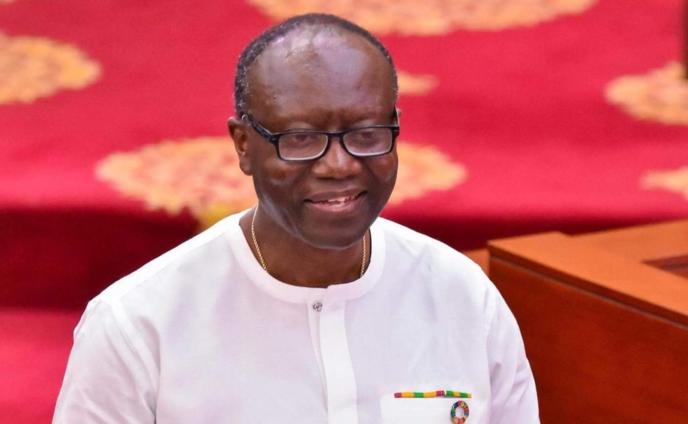Ghana agreed to terms to swap about $4 billion of domestic debt, taking another step toward meeting its obligations under an International Monetary Fund bailout.
The results imply Ghana achieved about 95% target under the latest three debt exchange deals.
The country’s Eurobond maturing in 2032 declined by 0.2 cents on Wednesday, August 30, 2023, to 43.7 cents on the dollar. Notes maturing in 2051 dropped by a similar amount to 42 cents on the dollar.
Pension funds agreed to exchange 29.6 billion cedis ($2.6 billion) out of 31 billion cedis of existing bonds for two new notes maturing in 2027 and 2028. The new instruments pay a total 21% coupon, compared with an average rate of 18.5% on the old holdings, under a special structuring to ensure the retirement funds don’t lose any money.
Investors also agreed to swap $741.7 million of foreign currency-denominated notes out of $809 million eligible bonds for two new securities maturing in 2027 and 2028 that pay 2.75% and 3.25% respectively, the Finance Ministry said late Tuesday.
Separately, the country’s cocoa-industry regulator will offer 13% on five new bonds maturing in 2024 through 2028 to investors who tendered 7.7 billion cedis out of their existing 7.9 billion cedis of cocoa bills for the new notes.
The coupon on the domestic dollar bonds was reduced from an average of 5.4% paid by the old notes while the old cocoa bills paid about 30%.
The latest measures will help the world’s second-largest cocoa producer, which defaulted on a Eurobond payment earlier this year, to overhaul its public debt — valued at about $50 billion — and unlock payments under a $3 billion IMF program.
The West African nation, which received an initial disbursement of $600 million when the IMF approved the program in mid-May, will get another $600 million if the first review at end-September is successful.
Ghana completed a reorganization of local currency-denominated bonds in February, with investors exchanging 87.8 billion cedis of securities for notes that paid as little as 8.35%, versus an average of 19%.
The so-called domestic debt exchange plan helped convince the IMF about Ghana’s resolve to restructure its loans, helping the West African nation garner financing pledges from bilateral creditors under the Group of 20’s Common Framework.
Ghana still needs more relief to bring debt to a target of 55% of gross domestic product by 2028 from 71.1% of GDP at the end of April.
The Ghana Cocoa Board will pay 5% of the principal in 2024, 20% in 2025 and 25% each in the rest of the three years, according to CalBank Plc, which advised the industry regulator on the transaction.
Latest Stories
-
Parliament approves new GH¢1 fuel levy after minority walkout
1 hour -
Tesla executives questioned Musk after he denied killing $25,000 EV project, sources say
2 hours -
Oreo maker sues Aldi in US over ‘copycat’ packaging
2 hours -
US steel and aluminium tariffs doubled to 50%
3 hours -
Ghana’s legal education debate: Are we expecting too much too soon?
3 hours -
Alcaraz storms through to semi-final with Musetti
3 hours -
Black Queens wrap up Abidjan training tour with defeat to Côte d’Ivoire
3 hours -
Inzaghi leaves Inter Milan ‘by mutual agreement’
3 hours -
‘Man Utd didn’t need the money’ – Fernandes rejects Al-Hilal move
3 hours -
Cybercrime ringleader, 10 others remanded in custody
3 hours -
Gov’t to expand student loans to all tertiary institutions – Education Minister
3 hours -
WaterAid Ghana, Guinness Ghana commission water project in Upper West Region
3 hours -
Energy levy: ‘You can’t continue pouring water into a leaking bucket’ – COPEC warns
3 hours -
Rising Star: Yvonne Dadson’s groundbreaking research earns international recognition
4 hours -
Suicide bomber killed in Uganda on Christian holy day, army says
4 hours

